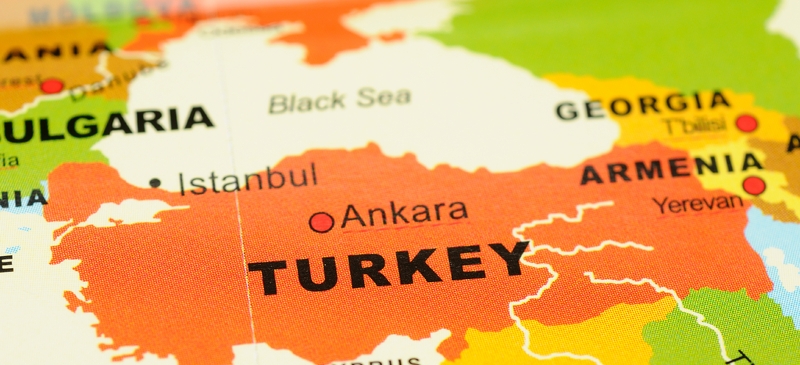
Turkey's turmoil, the EU's reaction
by Katinka Barysch
Political turmoil is nothing new in Turkey. After six years of unusual stability, tensions have mounted since early 2007. The army threatened to topple the AKP government in case it made Abdullah Gul president. Gul did become president, and the AKP emerged strengthened from an early election. Now the chief prosecutor has pushed a case in front of the constitutional court that threatens to ban the AKP because of its alleged anti-secular activities, most notably ending the ban on women wearing headscarves in universities.
So far, the EU has tried to stay out of Turkey’s battle between the mildly Islamist AKP and the increasingly desperate secular establishment. But last week Olli Rehn said that the court case was a mistake. Both he and Javier Solana have indicated that if the constitutional court banned the AKP, the accession negotiations would be off – or at least that is how the Turkish press have interpreted their statements.
A number of the people I spoke to during a Turkey visit last week were unhappy about the EU apparently taking sides. They say that Turkey’s West European friends underestimate the threat of creeping Islamisation. They worry about what Commission President Barroso will say when he arrives for his first official visit to Turkey this week.
The AKP and its supporters have a point when they say that this case is political and therefore merits a political response. They say that the 160-page indictment is based more on past statements by AKP politicians than on their actions. Yet not one of the 11 constitutional judges voted against accepting the case. To many, this indicates that the outcome is a foregone conclusion.
The AKP would not be the first party to be banned for allegedly violating the constitution: 24 have been shut down since the 1960s, including the AKP’s predecessors. But the circumstances have changed. The AKP has built up an impressive track record of reforms and modernisation during its seven years in office. It is popular enough to rule without a coalition partner. If it were closed down, it would reappear in a different guise and probably win another election. However, its top leadership, including Prime Minister Erdogan and President Gul, would most likely be banned from politics for years. For an organisation as hierarchical as the AKP this is hardly an acceptable outcome.
Instead, the government is thinking about pushing through a constitutional amendment that would make it harder to ban political parties. AKP leaders refer to the Council of Europe, which has said that only parties that support violence should be outlawed. The AKP does not have quite enough votes in parliament to change the constitution. It would need some support from the opposition, which would come at a hefty price. Alternatively, the AKP could put any amendment to a referendum, which it would presumably win.
Such a strategy may work, in the sense that it would prevent a ‘judicial coup’ against the government. But it would hardly assuage the concerns of those who suspect the AKP of using democracy as a means to pursue a hidden agenda of Islamisation.
That is why the European Stability Initiative – in a scary report about Turkey’s ‘deep state’ released last week – is calling on the government not to amend the old constitution but adopt an entirely new, more modern one. The ESI is right that a move to make it harder to ban parties would be more acceptable if it was part of a wider reform package.
It is also true that Turkey needs a new constitution: the current one dates back to the last military coup in 1982. However, the draft that legal experts wrote for the AKP last year has disappeared from view. Promises of a nation-wide debate have so far remained unfulfilled. Instead, the AKP has started doing constitutional change ‘a la carte’, especially by ending the headscarf ban. That was a mistake. But a constitution that was hastily adopted in an attempt to ensure the AKP’s political survival would lack legitimacy. Turkey first needs a wider debate about individual rights and a suitable systems of checks and balances. Constitutional change is simply too important for the future stability of Turkey to be rushed (see also
More than just a debate about the headscarf, article by Katinka Barysch, Financial Times, 7 November 2007).
There are other steps the AKP can take to bolster its reformist credentials; and it is taking some already. Erdogan now talks more about the government’s commitment to EU accession than he has done in a long time. After years of delay, a group of MPs has finally submitted amendments to the controversial article 301, under which the likes of Orhan Pamuk have been prosecuted. There is much more that the AKP could do, from liberalising rules for other religions to promoting women’s rights and making it easier for smaller parties get funding and parliamentary representation.
Barroso and other EU politicians should explain to Turkey that, unfortunately, the EU cannot offer an easy way out of the current dilemma. But that whatever the AKP decides to do would be more acceptable if the AKP restarted the modernisation and EU accession efforts that it has been neglecting over the last two years.
Katinka Barysch is deputy director of the Centre for European Reform.
